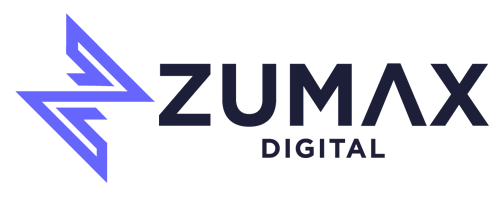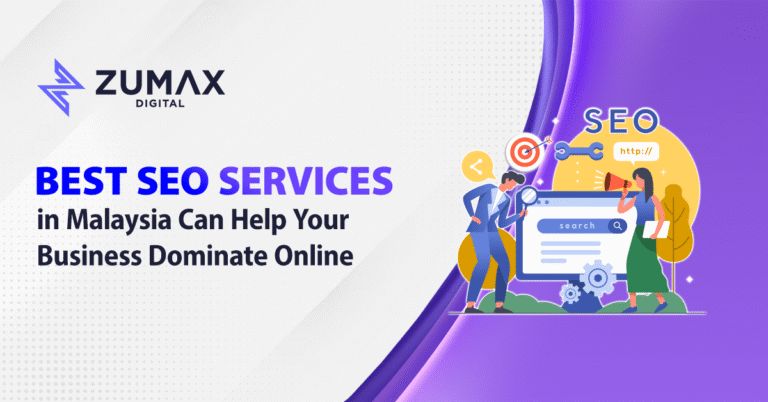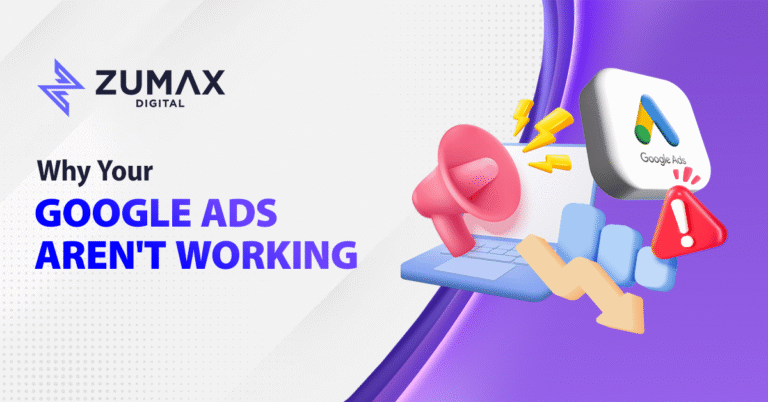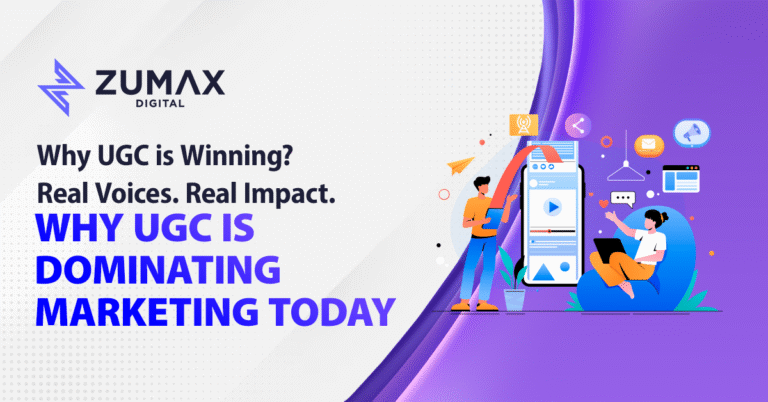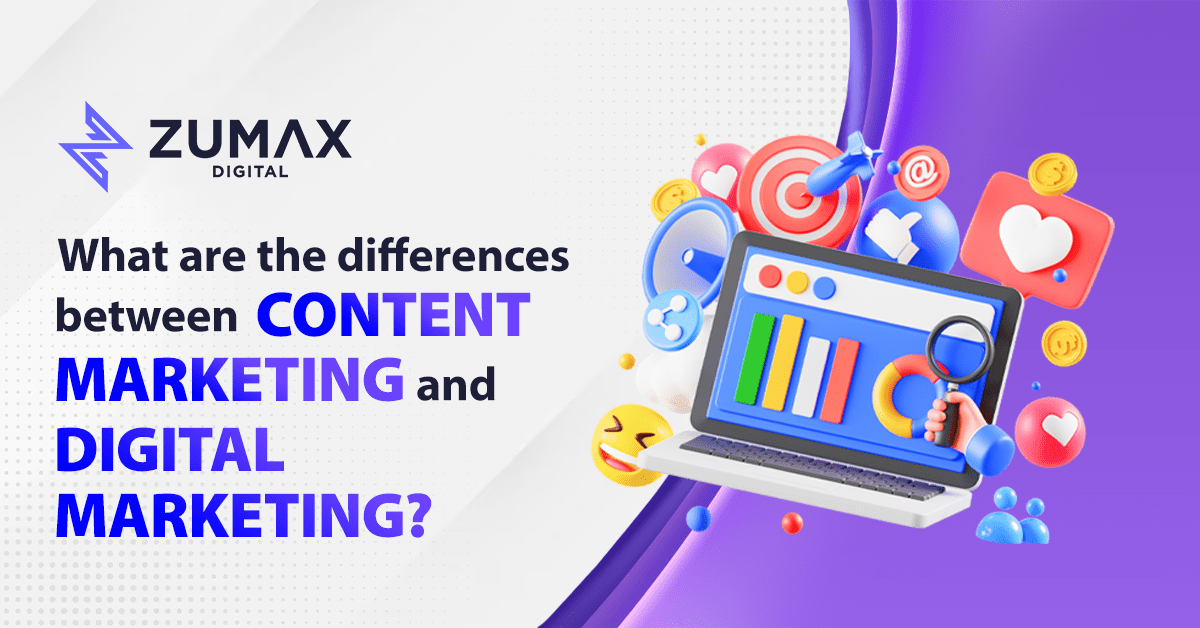
What are the differences between Content Marketing and Digital Marketing?
Ever wonder if content marketing and digital marketing are the same thing? You’re not alone! Although these two terms are closely similar, that’s why people are often confused and they’re not the same. Content marketing is a key component of digital marketing, representing just one piece of the bigger picture. And understanding the difference? It’s about picking the best approach for your business’s growth. Today, let us clear up the confusion!
This article will be an in-depth comparison of Digital Marketing and Content Marketing and how they define, relate, and enhance each other about major constituents and the benefits they present. Upon this foundation, you will be able to fully utilise the two strategies toward the attainment of business objectives.
Introduction
Content marketing and digital marketing are often used together, but they play different purposes in the marketing game. Content marketing is one of the large puzzles in the digital marketing game that focuses on creating valuable, informative, and engaging content, including blog posts, infographics, social media updates, and more. Digital marketing is the BIG picture that covers all the online advertising efforts, including paid advertising, email marketing, search engine optimisation (SEO), and yes, content marketing as well. Digital marketing focuses on increasing brand exposure and traffic through a range of platforms and strategies. Content marketing uses storytelling and engaging content to build trust and long-term relationships with audiences.
What is Content Marketing?
Content marketing focuses on creating useful yet relevant, periodic content to acquire and retain a specifically identified and known audience. It also aims to induce profitable customer behaviour through the provision of answer-supplying and problem-solving content. The strategy involves using blog entries, video clips, infographics, and social media to provide readers with utility and value.
Key Components of Content Marketing
1. Content Creation
Blog posts, articles, videos, infographics, eBooks, whitepapers, case studies, and more.
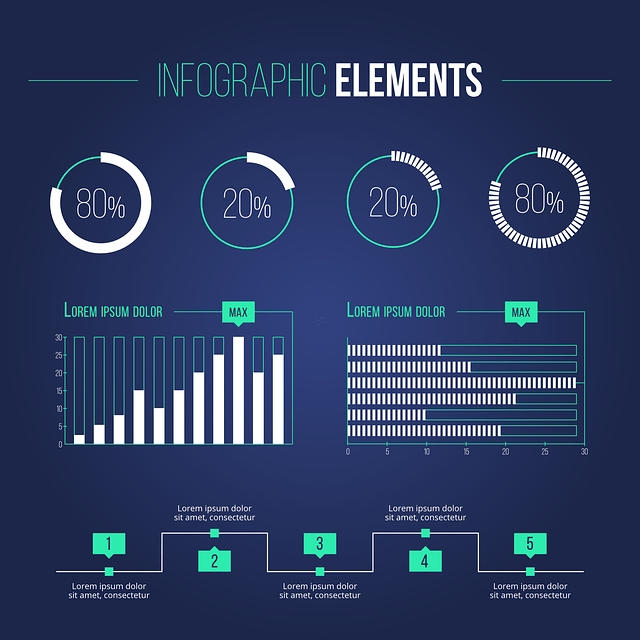
2. Content Distribution
Sharing content through owned channels (website, blog, email) and earned channels (social media, guest posts).
3. SEO optimisation
Ensuring content is optimised for search engines to improve visibility and organic traffic.
4. Audience Engagement
Encouraging interaction through comments, shares, and feedback.
Benefits of Content Marketing
- Builds trust and credibility with your audience.
- Improves SEO and organic search rankings.
- Generates long-term results as content continues to attract traffic over time.
- Establishes your brand as an authority in your industry.
- Cost-effective compared to traditional advertising.
What is Digital Marketing?
Digital Marketing encompasses any marketing strategy that uses the internet and technology of any form in any manner to influence and reach an audience. Online and offline ways of executing the marketing strategies that drive a brand, a product, and a service among a mass audience and get them converted into buyers within a short time.
Key Components of Digital Marketing
Search Engine Optimisation (SEO)
Optimising website content to rank higher in search engine results.
Search Engine Marketing (SEM)
Paid advertising on search engines like Google (e.g., Google Ads).
Social Media Marketing
Promoting content and ads on platforms like Facebook, Instagram, LinkedIn, and Twitter.
Email Marketing
Sending targeted emails to nurture leads and retain customers.
Pay-Per-Click (PPC)
Paid ads that drive traffic to your website.
Affiliate Marketing
Partnering with influencers or other businesses to promote your products.
Analytics and Data Analysis
Tracking and measuring campaign performance.

Benefits of Digital Marketing
- Reaches a wider audience through multiple digital channels.
- Provides real-time data and insights for quick adjustments.
- Offers precise targeting options to reach specific demographics.
- Increases brand visibility and awareness.
- Drives immediate results through paid campaigns.
Key Differences Between Content Marketing and Digital Marketing
- Focus and Goals
Digital Marketing: Primarily focused on converting leads into customers through direct strategies like PPC and SEO by promoting products or services through various digital channels.
Content Marketing: Aims to educate and build trust with potential customers, often leading to long-term brand loyalty by creating valuable content to educate, inform, or entertain the audience.
- Approach
Digital Marketing: This can be very direct, aiming for immediate conversions. Utilises both organic and paid tactics, including PPC, SEM, and social media ads.
Content Marketing: Indirect and subtle, focusing on building relationships over time. Relies on organic tactics like blogging, SEO, and social media sharing.
- Time Frame
Digital Marketing: This can offer immediate results, especially with strategies like PPC.
Content Marketing: Typically a long-term strategy, requiring patience to see significant returns.
- Scope and Metrics for Success
Digital Marketing: Encompasses a wide range of online marketing strategies. Measures success through metrics like click-through rates (CTR), conversion rates, return on ad spend (ROAS), and cost per acquisition (CPA).
Content Marketing: A specific strategy within digital marketing focused on content creation and distribution. Measures success through metrics like organic traffic, time on page, social shares, and lead generation.
How Content Marketing and Digital Marketing Work Together

Synergies Between the Two
While content marketing and digital marketing each play a different role, they’re at their best together. Content marketing does the heavy lifting with the creation of useful content that inspires and entices the audience. This useful content can be optimised with SEO to maximise visibility within the search engines or posted socially to maximise the audience reach.
Example of Integration
- SEO-Optimised Blog Posts: Writing blog posts that target specific keywords can improve search engine rankings, driving organic traffic to your site.
- Social Media Campaigns: Sharing content on social media platforms can increase engagement and drive traffic to your website.
Advantages and Disadvantages of Each Approach
Content Marketing Advantages:
- Builds Trust and Credibility
Businesses can establish themselves as authorities in their field by providing valuable content.
- Long-Term Results
Content can continue to attract visitors over time, offering sustainable growth.
- Cost-Effective
Once created, content can be reused across multiple platforms.
Content Marketing Disadvantages:
- Requires Expertise
Effective content marketing needs a deep understanding of the target audience and content creation skills.
- Slow Results
It can take time to see significant returns from content marketing efforts.
Digital Marketing Advantages:
- Immediate Results
Strategies like PPC can drive immediate traffic and conversions.
- Measurable ROI
Digital marketing campaigns often provide clear metrics on their effectiveness.
- Flexibility
Digital marketing strategies can be adjusted quickly based on performance data.
Digital Marketing Disadvantages:
- Cost
Some digital marketing strategies, such as PPC, can be expensive.
- Over-Saturation
Audiences may become resistant to frequent advertising.
Conclusion
Content Marketing and Digital Marketing are two force-to-be-reckoned-with strategies that, if blended, will amplify your marketing efforts tenfold. While Content Marketing emphasises the development of valuable and useful content that earns the audience’s respect and authority, Digital Marketing uses the internet and social media avenues to push that message and drive instant results.
By understanding the contrast and synergy of the two, you will be able to create a properly balanced marketing strategy that delivers short-term results and long-term growth. Irrespective of whether you’re a small business company or a large business firm, a combination of Digital Marketing and Content Marketing will keep you competitive in the world of technology nowadays.
Final Tip: Start by auditing your current marketing efforts to identify gaps and opportunities. Then, develop a plan that combines the best of both worlds to achieve your business goals. Not sure where to start?
Fret not, Zumax Digital can help! As a full-service digital marketing agency in Malaysia, we offer a variety of services, including:
- SEO Services in Penang
- Facebook Marketing Services
- Google Ads Services
- Web Design Services
- Influencer Marketing Services
…and much more! Contact us today!

